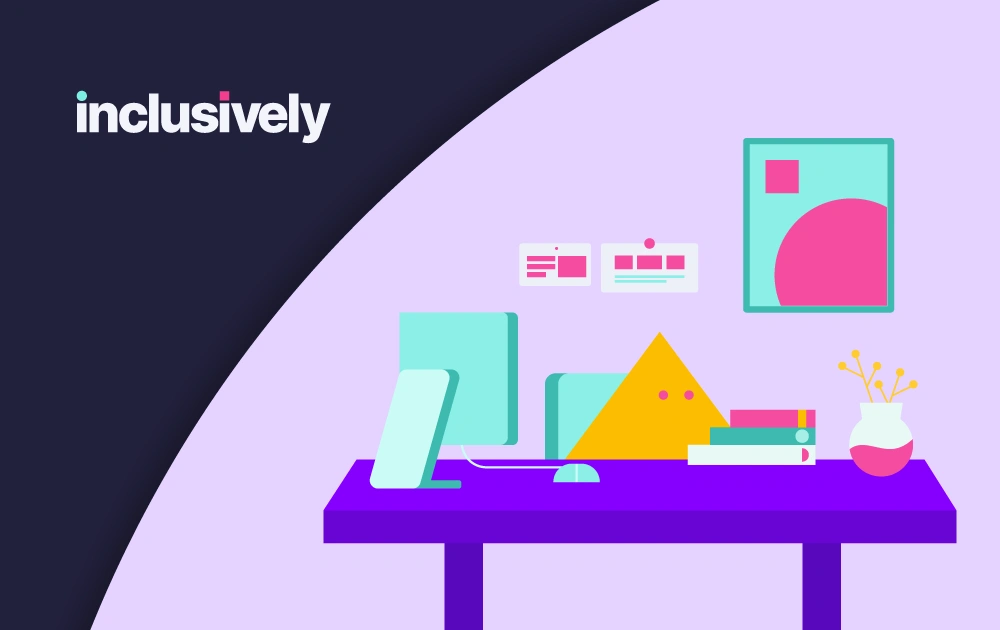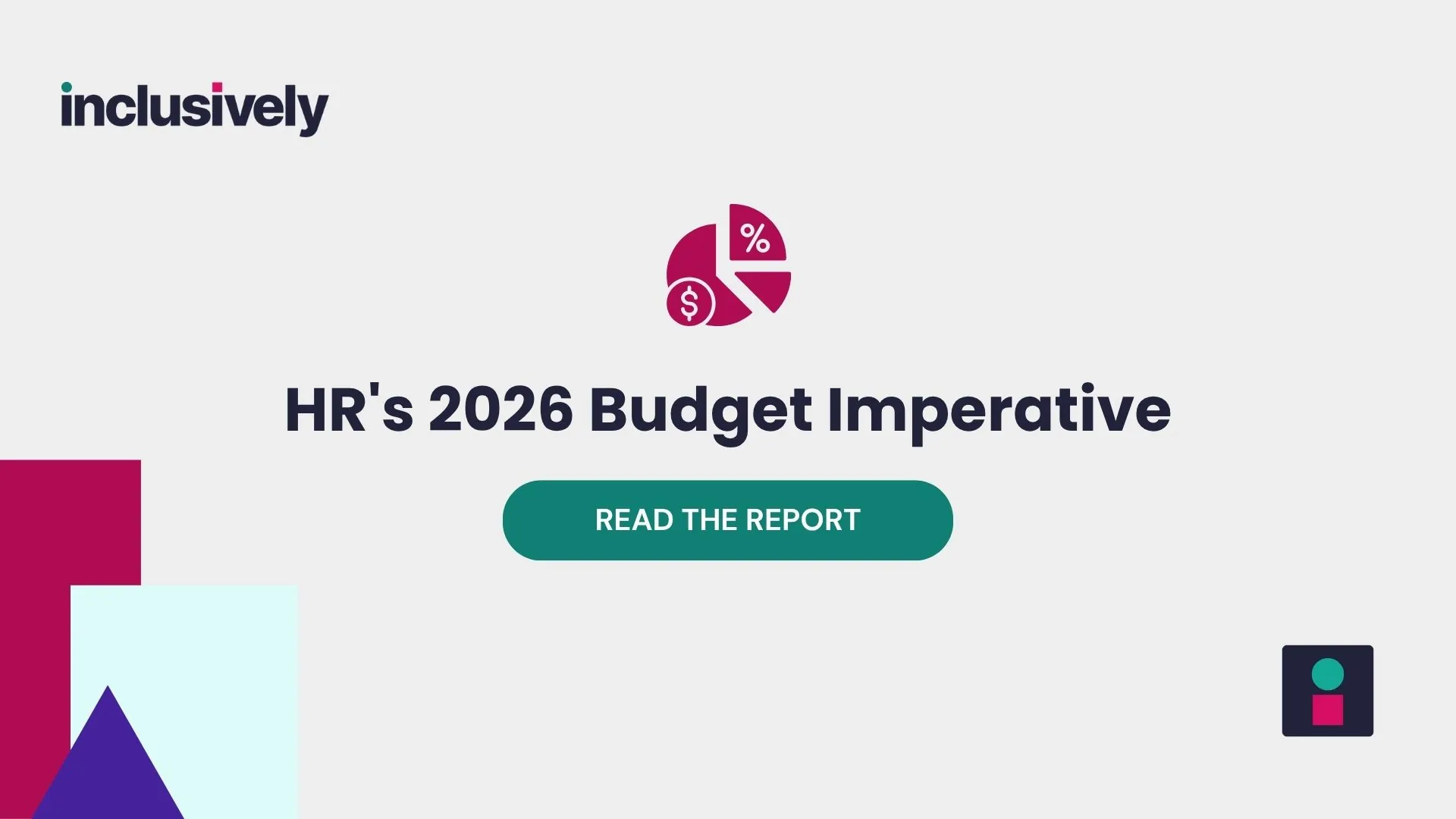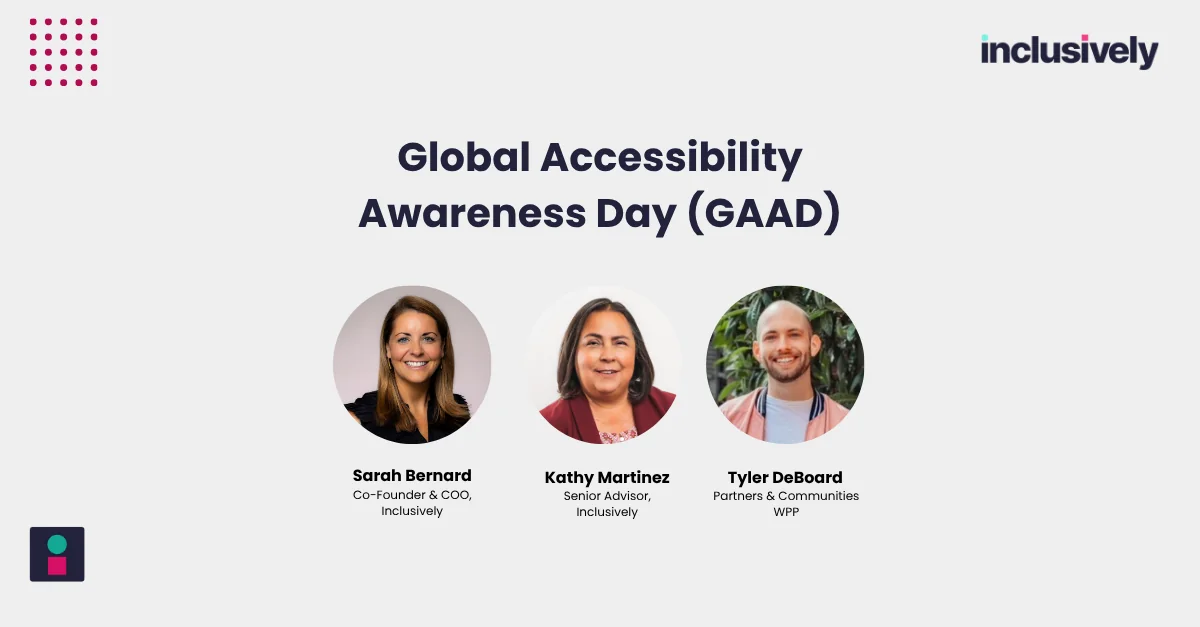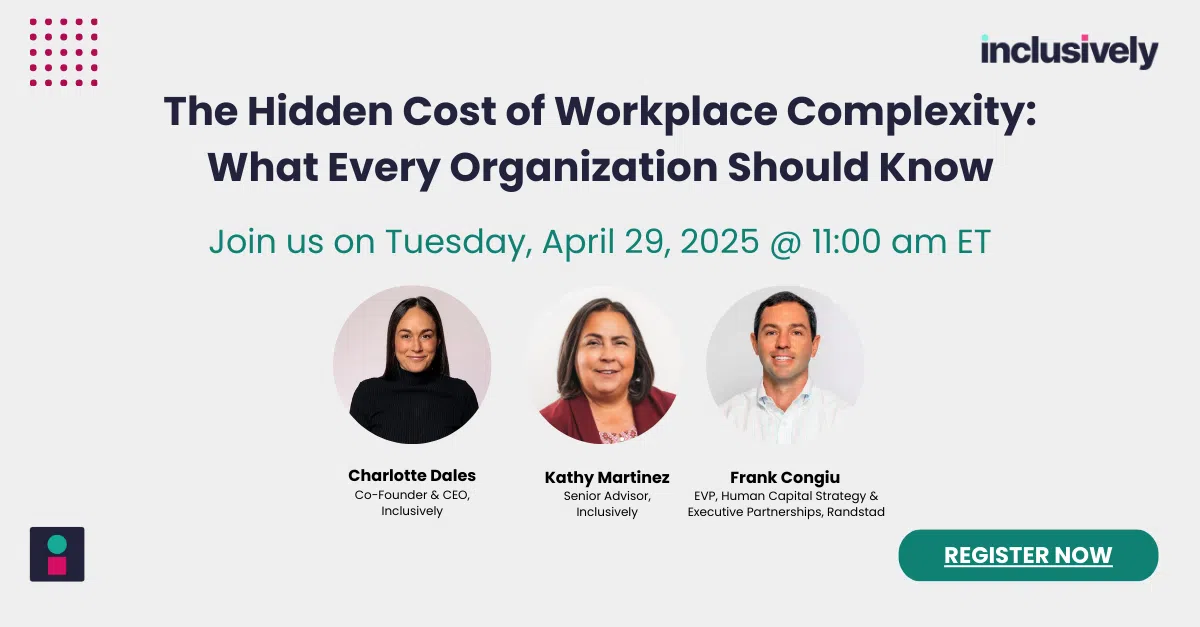Updated on December 20th, 2023
Disability stereotypes can be found in many workplaces. Ableism and these wrong ideas can stop people with disabilities from getting ahead in their careers. But the goal is to improve the workplace for everyone, not just those with disabilities. By ensuring all employees have fair chances, we can make the workplace more inclusive and give everyone a chance to succeed.
Unpacking Stereotypes: The Career-Limiting Myths
Sometimes, people have wrong ideas about disabilities that can hold back someone’s career. Here are some common stereotypes and how Inclusively is working to change them:
- People with Disabilities Can’t Lead: Some people wrongly think that individuals with disabilities can’t handle big job responsibilities. This idea can stop them from getting promotions or leadership roles.
- They Always Need Help: Another wrong perception is that people with disabilities always need help. This can lead some people to think they are hard to work with.
- They Can’t Communicate Well: Some people might think that those with hearing or speech disabilities can’t talk or work with others well. This ableist idea can make others doubt their ability to be part of a team or lead others.
- They Aren’t Reliable: Some might worry that employees with disabilities will need too much time off for medical reasons. This can make it harder for them to move up in their careers.
Inclusively’s workforce inclusion platform works to remove these misconceptions and champion inclusivity. It demonstrates to companies that all workers, regardless of disabilities, have unique skills and can successfully do their job
By focusing on what people can do, not what they can’t, Inclusively helps companies see past these stereotypes and recognize the value of a diverse workforce.
Inclusively in Action: Real-world Examples
Inclusively has often come across situations where stereotypes about disabilities have played a role in limiting an employee’s growth potential. For example, there was a case of a highly skilled individual with a physical disability, overlooked for a managerial role because of the misconception that they couldn’t handle the “stress” associated with it. Another instance highlighted an employee with a speech disability excluded from client meetings, based on the false assumption that they couldn’t communicate effectively.
In these scenarios, Inclusively guided employers. For the first case, by organizing an inclusive leadership training session, illustrating how physical abilities aren’t indicators of managerial prowess. For the second, by arranging a workshop that demonstrated the varied communication methods, emphasizing that speech disabilities don’t equate to an inability to share ideas or lead discussions. These real-life interventions corrected misguided notions and opened doors for employees previously held back.
Platform Power: How Inclusively Counters Stereotyping
Inclusively’s platform is more than just a tool; it’s a bridge towards understanding and inclusivity. It’s packed with features that push against common stereotypes.
One notable feature is the skills and expertise spotlight, which focuses on an individual’s capabilities and strengths. This ensures that potential employers see the value an employee brings to the table first and foremost.
Another feature is the integration of success stories. By showcasing real-life examples of people with disabilities thriving and leading in their roles, it challenges pre-existing notions and paints a vivid picture of potential.
Moreover, the platform offers analytics. It gives employers insights into how inclusive practices boost productivity and morale. By clarifying these benefits, the platform fosters a workplace environment where everyone, regardless of their disabilities, gets equal opportunities to grow and succeed. Through these features, Inclusively promotes a vision of workplaces where everyone’s potential is recognized and nurtured.
Training to Challenge the Norm: Inclusively’s Initiatives
Inclusively is not just about placing individuals into roles but about cultivating a corporate environment that understands, values, and promotes diversity in its truest form. Our training modules are meticulously designed to challenge conventional thinking and to pave the way for a holistic, inclusive work culture.
One of the flagship training sessions dives deep into recognizing and rectifying unconscious biases. This module doesn’t solely focus on disability stereotypes but explores biases across the board, teaching teams to see beyond societal norms. Another interactive workshop zeroes in on communication etiquette, teaching teams how to interact respectfully and effectively with all colleagues.
A significant highlight of Inclusively’s training regime is simulation exercises. Participants are placed in scenarios that allow them to learn about real-life experiences of those with disabilities, providing a firsthand experience of the workplace challenges faced and debunking myths.
For hiring managers and employers, there’s an emphasis on skills-based hiring. Through immersive sessions, they are trained to see the talent and potential in every candidate, regardless of their physical or cognitive disabilities. The goal? To ensure that the best person for the job is selected, free from biases or misconceptions.
Measurable Gains: The Data-Driven Impact of Overcoming Stereotypes
Numbers often speak louder than words, and Inclusively’s analytics deliver a compelling narrative. Their data showcases a remarkable uptick in employee satisfaction and retention rates in companies that actively combat stereotypes.
For instance, companies that have integrated Inclusively’s training modules reported a 20% increase in long-term retention of employees with disabilities. This isn’t just a win for inclusivity and business; higher retention rates translate to reduced hiring costs and sustained company knowledge.
Furthermore, there’s a positive ripple effect. When companies champion inclusivity, it creates an environment where all employees, not just those with disabilities, feel valued and understood. This has led to a marked increase in overall employee engagement and productivity. Such data underscores the essential truth: when barriers are removed and stereotypes are challenged, everyone benefits, creating a vibrant, inclusive, and efficient workspace.
Conclusion
Workforce inclusion platforms are essential in promoting change and guiding workplaces to a more inclusive future. By challenging old stereotypes, they set the stage for a more equal work environment. Companies should see the value in this and join the effort wholeheartedly. It’s not just about imagining, but actively working towards a world where everyone, no matter their disability, gets an equal chance to succeed.
Whether you are seeking a job or seeking to employ people with disabilities, feel free to contact us, and we will guide you through the process.



